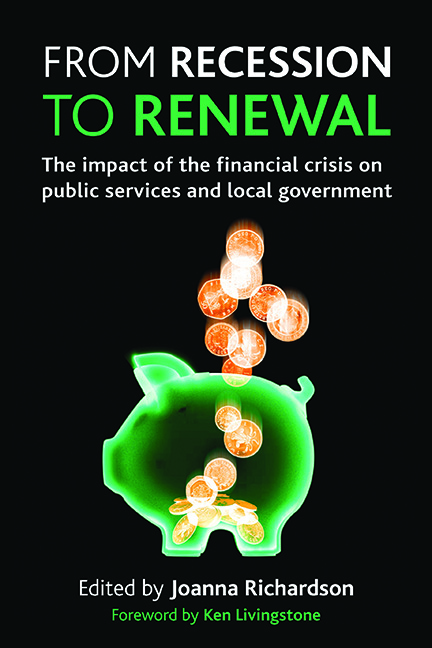 From Recession to Renewal
From Recession to Renewal Foreword
Published online by Cambridge University Press: 01 September 2022
Summary
With the world economy at several crucial turning points and the new ‘Con-Dem’ coalition preparing a package of tax increases and spending cuts there can't be a better time to re-evaluate our economic strategy.
Postwar economic history fits into two neat segments: the broadly social democratic agenda from 1945 to 1976, followed by the monetarist fundamentalism which exploded both here and abroad in 2008. In the main Western economies the first 30 postwar years were the most successful period for gross domestic product (GDP) growth with a strongly redistributive tax policy (a top rate of 98% in 1950s Britain and 90% under Republican President Eisenhower). The proceeds of GDP growth sustained high levels of public and private investment and closed the inequality gap. In Britain in 1979 the richest 10% of the population were worth four times the poorest 10%, not merely due to benign governance but coinciding with the apex of trade union influence over the economy.
Thirty years after Margaret Thatcher and Ronald Reagan launched their economic revolution, trade union power is diminished and the richest 10% are now worth eight times the poorest. According to the monetarist script, we should have gone from strength to strength visà- vis the rest of the world, but investment has collapsed and on the human side the casualties have been immense, with the growth of an underclass in poorly paid and insecure employment and, in some areas, no prospect of employment for themselves or their children. Yet the parents of the ‘broken Britain’ generation were the lower middle class and skilled working class who had well-paid and secure employment throughout the 30 years after the Second World War.
This shift of power and wealth upwards has not revived the economies of Britain and America. Contrary to the Thatcherite mantra that ‘public investment squeezes out private investment’, there was no corresponding increase in private sector investment as Thatcher reduced public investment from a postwar average of 5.5% to 1% of GDP. To its shame, Tony Blair's government challenged little of the Thatcherite consensus and merely raised public investment to 1.5% of GDP.
- Type
- Chapter
- Information
- From Recession to RenewalThe Impact of the Financial Crisis on Public Services and Local Government, pp. xi - xivPublisher: Bristol University PressPrint publication year: 2010


